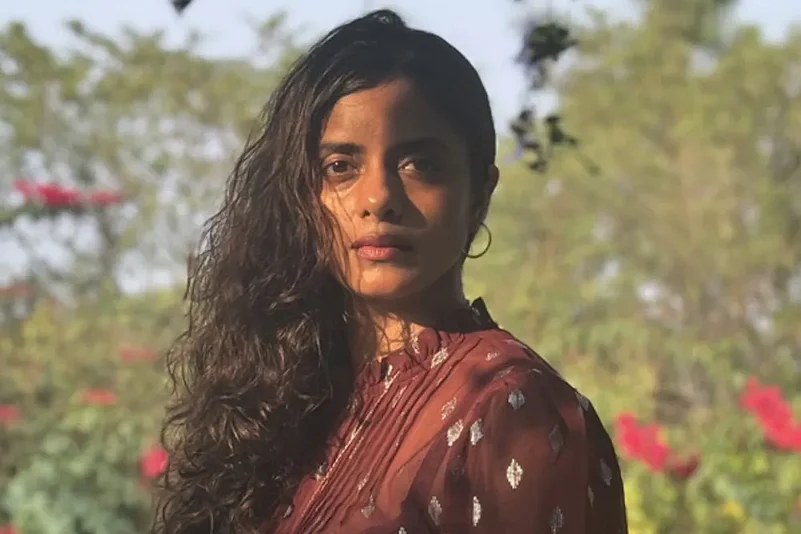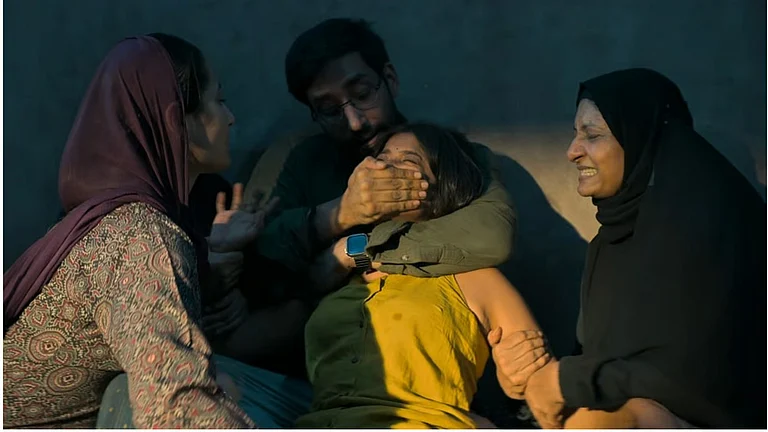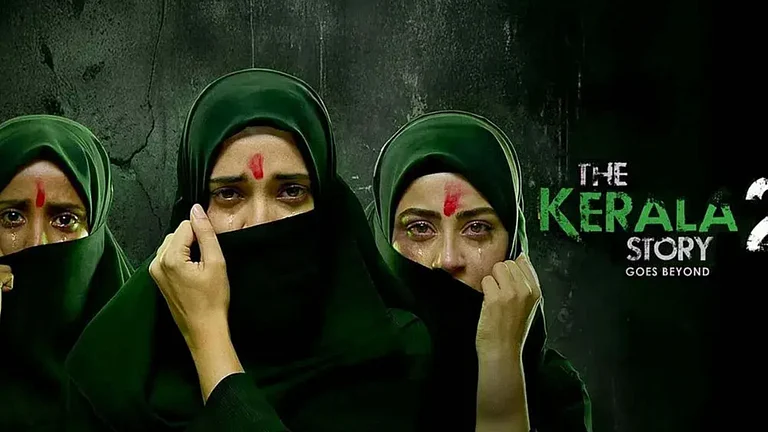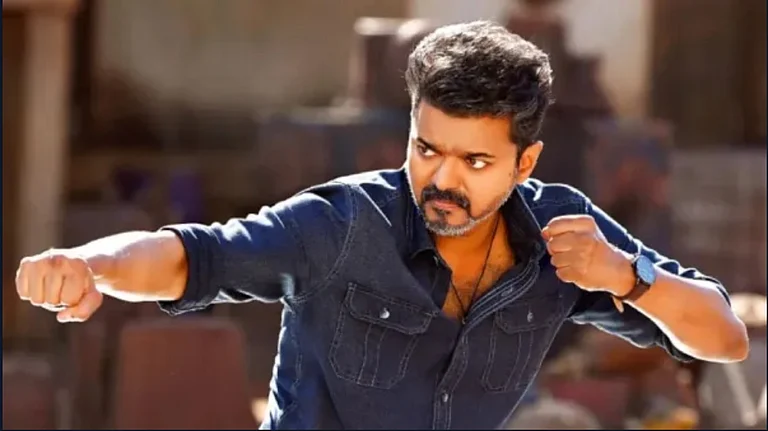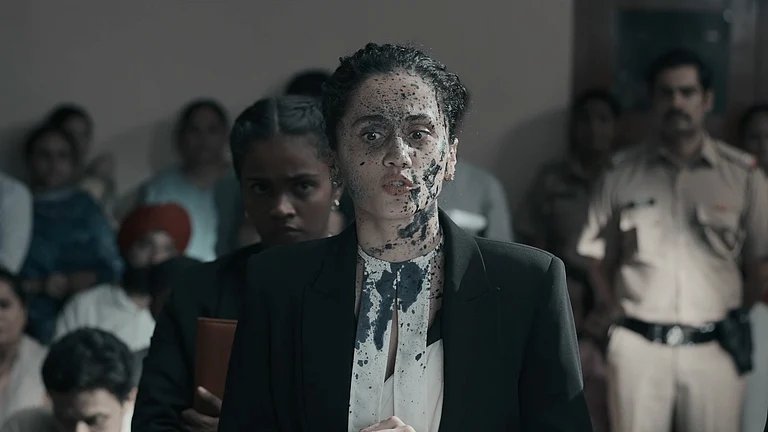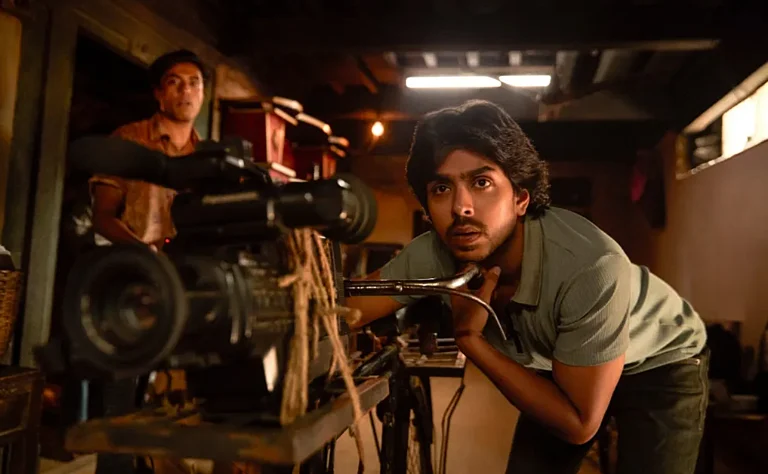Kani Kusruti might have had the most charmed 12 months in 2024, but she’s ready to move on. One can almost see the fatigue on her face when (another!) question is posed to her about what many of her colleagues might consider as a career-making year. Apart from Cannes-winner All We Imagine As Light, and Sundance-winner Girls will be Girls, the 39-year-old also appeared in relatively smaller roles in Killer Soup and Poacher—two of the best-reviewed shows of the year. Kusruti doesn’t believe she’s an extraordinary actor, and says it aloud in interviews despite being advised not to. Her Instagram account explicitly mentions she will not be doing brand promotions. She’s described herself as a ‘reluctant actor’ in earlier interviews, and accepts that she’s not devoted to it like some of her friends. In an industry, where it’s commonplace to throw words like ‘passion’ and ‘obsession’ for self-mythologizing purposes, Kusruti’s irreverence feels refreshing and rebellious.
Maybe it helps that Kusruti’s journey is much more holistic, compared to her peers. Having studied theatre at L'École Internationale de Théâtre, she started with small roles in films in Kerala, slowly climbing the ranks to short films and eventually making her way to features and web series. It’s been a deliberate, gradual ascent, during which she’s gone on to enjoying acting in front of a camera a lot more.
The first time Kusruti came to prominence was in a short film called Counterfeit Kunkoo (2018)—playing a migrant, navigating the trials & tribulations of Mumbai alongside a still-unknown Vijay Varma. Six years later, in All We Imagine..., where she plays a Malayali nurse living in Mumbai, things came full circle. It’s a fairytale ending for actors showing fortitude and refusing to conform.
In an interview with Tatsam Mukherjee, Kani Kusruti reflects on her journey as an actor—navigating the different cultures of film industries in Kerala, Tamil Nadu and Mumbai, and whether 2024 has changed anything in her life. She opens up about how she’s made her own rules for the game that is a career in Bollywood. Edited excerpts:
You had quite the night at Critic’s Choice Awards 2025 (where she was nominated for Poacher, All We Imagine and Girls will be Girls—she won in two categories). I’m assuming as an aspiring actor, you might have dreamt of an evening like that?
No, I’ve never thought of it like that. It’s just that I’ve gradually found my calling as an actor. It was a slow process for me—it took a while before I realized it’s not just another hobby. It was never my dream to be an actor, so, obviously I hadn’t dreamt of an evening like this. It just so happened that all this work came out in the same year, and they all turned out well.
But, at the same time, what an honor to be nominated alongside such wonderful actors! Darshana (Rajendran), and even Urvashi ma’am is someone adored by everyone in Kerala. When I was younger, I hardly thought about cinema itself. I consumed it like any other viewer, and I’m quite the critic actually! Most things I don’t like, including my own acting. A lot of people tell me to not say this in interviews, but objectively, I think I’m an average actor and I put in the work, and even then I think I fail more than I succeed. A night like that— sending a few more interesting projects one’s way as an artist—is the best thing that can happen. It would be great if it leads to me working with actors I admire.
Do you remember your relationship with films growing up? Would you call yourself a film buff?
Absolutely not! My parents were huge film buffs. They would take me along for second shows, which wasn’t the norm in Kerala at the time—a family showing up for the evening show. In most films, I’d fall asleep within the first five minutes. I used to find it very tiresome, I couldn’t understand why people would sit in a dark room and watch something. I wasn’t fascinated by cinema back then. Only films like Jurassic Park (1995), Independence Day (1995)—films about the sky and the universe I’d enjoy. Anything Sci-Fi or fantasy, I’d watch. I would get bored by human dramas. I was a fan of the dance numbers, especially ones by Prabhu Deva and AR Rahman—I’d watch those and sleep through the rest of the film.
It was only when I was 15 or 16, when someone was asking me my favorite films, that I listed them. And they told me, “So you like such and such director’s work.” I hadn’t realized there was a director, and there were recurring qualities in the films I’d mentioned. Before that, I’d always seen them as a Mohanlal or a Mammootty film, never grasping the role of a director. That’s when I became more curious about film watching, and realized that I liked some human dramas, some absurdism, surrealism etc. I always preferred theatre at first because I saw it as a performing art of a collective. I studied a certain kind of theatre, came back and realised that there’s very little money in this.
It was only when I felt the need to sustain myself through film work, when I started taking it up. It was during this acting workshop held by my friend Kapila’s father called ‘Navrasa Sadhana’, when I started paying attention to the craft of acting more than I ever had.
How do you look back at 2024—what has changed?
One significant change is a lot more interviews are happening! (laughs) What’s sweet is that it’s allowed me to connect more easily with actors I admire. In terms of work offers, I think it’s what I was getting even otherwise. Maybe, there are one or two offers that happened because of last year. I don’t think life has changed. Maybe, I was a bit coy going out because everywhere people would talk about my achievements; it’s better now. I’m glad it happened, but good that it is over.

What’s one thing you prefer about the Hindi film industry vis-a-vis working in the Malayalam industry and vice versa?
I’ve worked in Hindi films and shows more than I have worked in Kerala recently. I find Bombay shoots more organized—it’s more professional, compared to the shoots in Tamil Nadu and Kerala. Very rarely have I seen a mismanaged shoot in Bombay. The communication has been very smooth—I’ve been paid on time. In both Tamil and Malayalam films, they’re far behind.
Contracts are not a thing down South; most times the payment is delayed. There are a few exceptions of course, but it’s not the norm like it is in Bombay.
Having said that, I feel the whole process of filmmaking in Malayalam is ahead of Tamil and Hindi. The process might be chaotic, and it might make some people suffer too—but the creative satisfaction on a Malayalam film set is quite unlike anything on other sets. For anything else, I’d prefer Bombay.
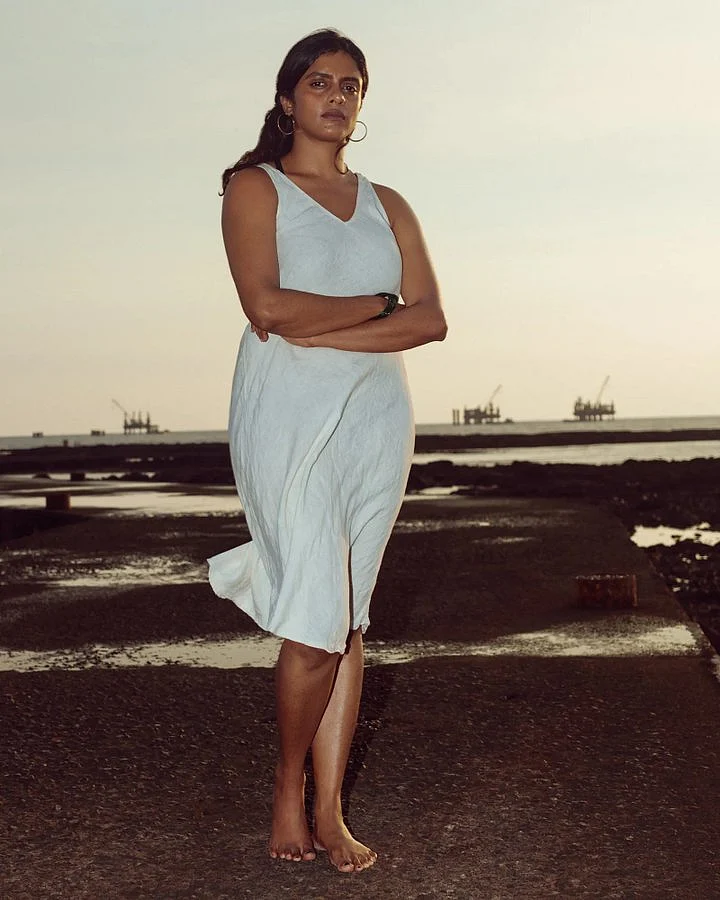
Mainstream Hindi cinema has these rigid diktats for aspiring actors. Were you ever filled with doubt while trying to make your way in?
First of all, I didn’t come to Bombay. Bombay came to me! I have to be honest—I have friends who worship the craft of acting. They live, breathe it every single moment of their life. I don’t have that kind of devotion. I have friends who are successful, and also who are not getting enough work.
When Payal reached out to me for All We Imagine, it was way back in 2017, she’d seen a short film of mine called Memories of a Machine (2016). At that time, her film still hadn’t gone to Cannes, and I was supposed to play the character of Anu. She was an FTII student reaching out to me, and we just happened to gravitate towards each other. I think I’m equally diligent on any set, whether it’s Payal’s film or Counterfeit Kunkoo. I try my best in any or all environments.
About fitting in, I don’t think I’ve had those thoughts since I was 11 or 12. I was always sure about my place in the world. I don’t think the film industry can pressure me in a way to force me to change something about myself.
Konkona Sen Sharma recently spoke in an interview about being typecast as a ‘woman of substance’, which she thinks hindered her career in some way because she wanted to play problematic characters as well.
I wish somebody writes that (problematic characters) and everybody gets (to play) all kinds of characters, but I don't see a wide range of female characters being written much in Hindi cinema. I mean, we are all kinds of people, right? I think the only exception is Urvashi ma'am -- who played all kinds of female characters, something most of us wish for.
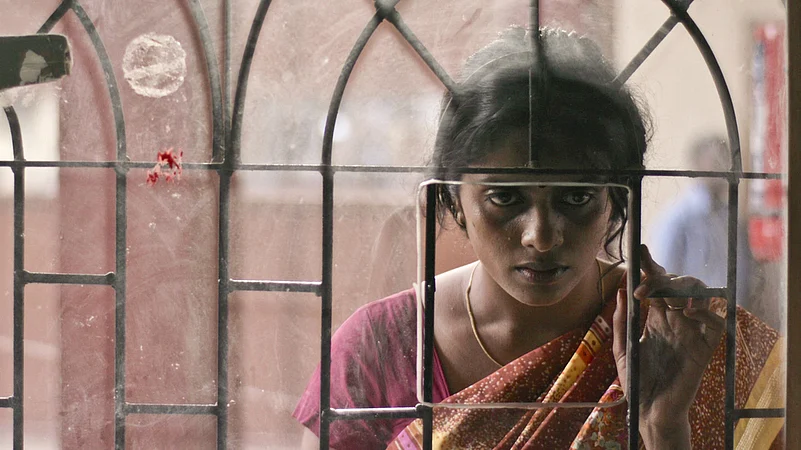
Has it happened to you, being typecast? How does one fight that?
All the time. And it's not just me, it’s everybody. I think even stars are approached that way in this country. If there is a hit for a star, that star is approached for the same kind of films, the same kind of character for the next two to three years, till another hit film comes along. So, I don't feel bad because I think all actors are treated like that. In that, we are very democratic (laughs).
Jokes apart, there are two ways I’d love to approach this; I have not been able to, though. The thing is, sometimes, it's just like what Konkona ma'am said—you’re asked to have a certain personality, no matter what you do. That's really sad. If there is somebody who is doing a police role, he or she is always playing a police character in every film. If there’s a doctor, there’s a ‘doctor look’. There’s a ‘police look’.
So, this used to happen. I mean, we know that there are a lot of police and doctors. All of them are different. No two teachers are alike; we can always bring those character differences. Even if your job is the same, even if you are a police officer, you can be very stubborn or laid-back, but still bright or not bright. You can make all these combinations. But most of the time, directors will tell us to do exactly what we did in the previous role. They want just that. That is where the challenge lies.
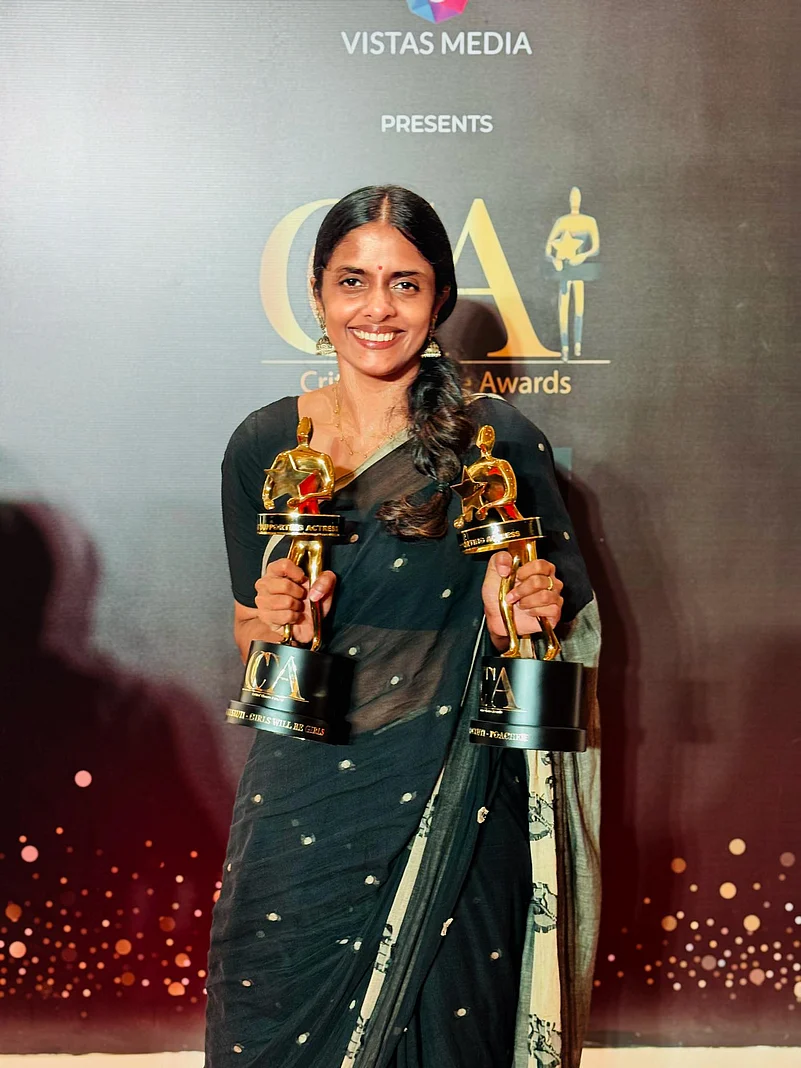
Mainstream filmmaking tends to have this effect where it homogenizes actors. Everyone starts looking like the next person. What’s a way to preserve your individuality?
I feel it more in independent films than in mainstream films. They come with a certain way of acting. Most people want to underplay everything; most directors from independent films don't want you to express much; they want you to underplay and go slow. There is a certain meter they look for in independent films particularly. I'm not talking about independent films in other countries.
I feel it is equally there in mainstream and independent films, though there are original authors that exist in both. It’s like, ‘Oh, you are like Smita Patil, then act like Smita Patil.’ I'm not saying all independent films from India are like that. But most of them will have a certain rhythm, a certain way of looking or acting, a certain style that directors and actors bring.
The same thing also happens in mainstream films. There may be something that people like, but there will always be some directors who will go for originality. They will discover what that story is about, along with their actors and other artists. Similarly, there will be some independent films where they will discover that as well. It's just that, sometimes, people, including me, fall into a certain style of acting. That push to form new things has to come. You either push yourself as a rigorous artist, or maybe you are lucky enough to work with an amazing director, who will push you to break that.
How do you hold on to your individuality in a business where, like you are mentioning, everyone is trying to clone the most successful person?
I feel there have always been artists like that and they continue to be. I think now more (actors) have such individuality than any other time—as long as it is all your choice.
It is like a play—you can just fall into the stream and swim along with the rest, or you can choose not to swim and walk instead. As long as you are deciding what you want to do, it's great. But sometimes, you don't have choices. I probably don't want to be in a place like that, but I think sometimes people can enjoy it. Other times, it’s not because they enjoy it. They just have to do it because it's the way to survive. In an ideal world, we would embrace diversity, even as viewers.
But cinema, particularly, is made with a lot of money, so there is a lot of risk. People tend to do the same thing because you want to reduce the risk. So, I understand that, but I hope for a future where we don't have to be like that.

Interesting opportunities are rare. How do you navigate the waiting period between projects? What does the wait do to your mental health, especially before you’ve broken out as an actor?
Sometimes it's hard, but I try to not wait. This idea of waiting…I want to have a life where I have my things to do, and when work comes along, I take a break from my life to pursue it. I’m not like, ‘Oh, acting is my life! Now that I don’t have that I will sit and wait.’ I always have my own things going on. Sometimes I practice my sitar, sometimes I go to the gym…spend quality time with the people I love. You cannot always afford these things; sometimes they are privileges. The only problem with actors is sometimes, we don’t have the money to sustain ourselves during that period of waiting.
In some developed countries, they support artists when they don’t have work. If we also had such things, then artists wouldn’t feel that wait so much.







